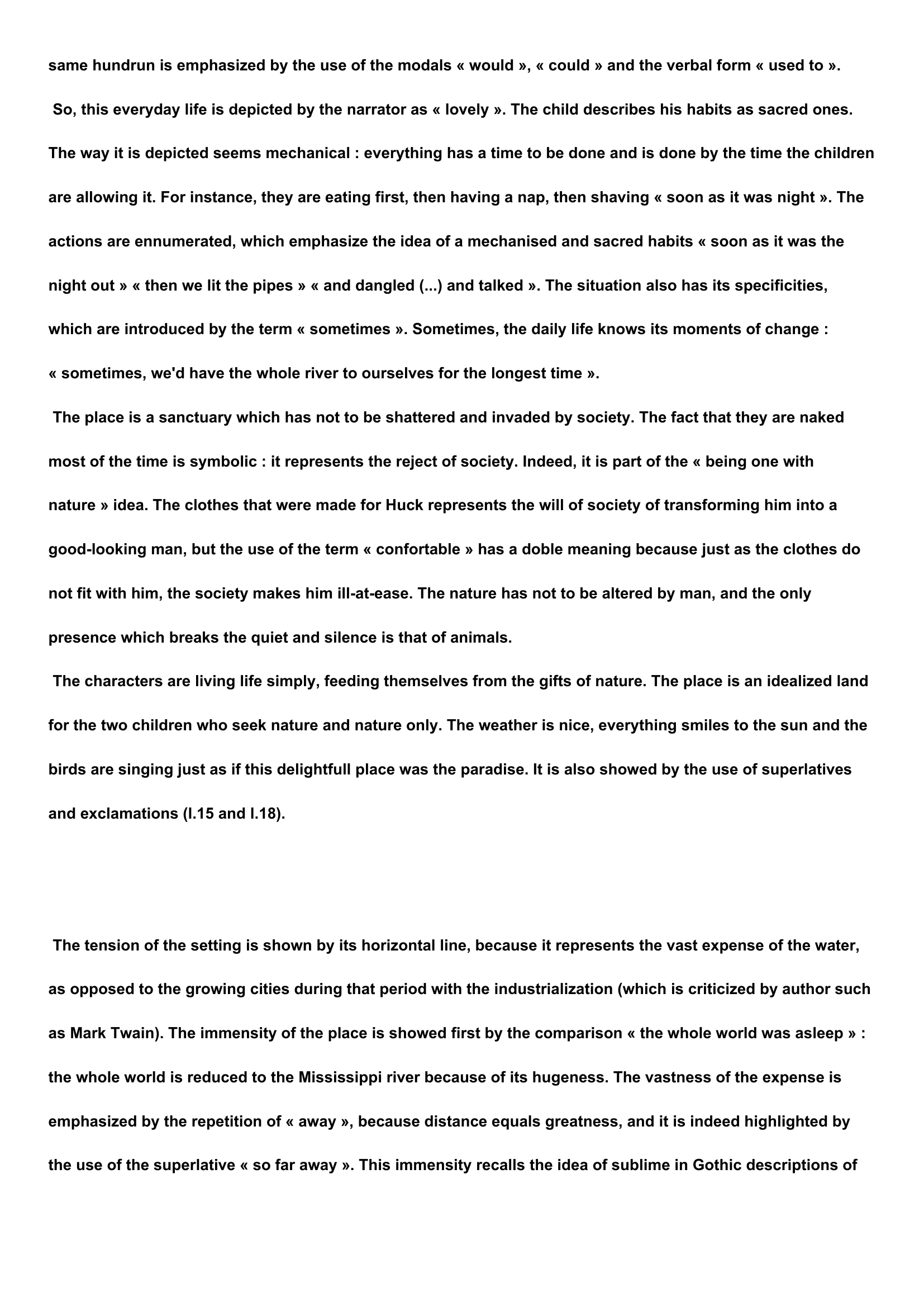Commentary The adeventures of Huck Finn
Publié le 29/01/2014

Extrait du document
«
same hundrun is emphasized by the use of the modals « would », « could » and the verbal form « used to ».
So, this everyday life is depicted by the narrator as « lovely ».
The child describes his habits as sacred ones.
The way it is depicted seems mechanical : everything has a time to be done and is done by the time the children
are allowing it.
For instance, they are eating first, then having a nap, then shaving « soon as it was night ».
The
actions are ennumerated, which emphasize the idea of a mechanised and sacred habits « soon as it was the
night out » « then we lit the pipes » « and dangled (...) and talked ».
The situation also has its specificities,
which are introduced by the term « sometimes ».
Sometimes, the daily life knows its moments of change :
« sometimes, we'd have the whole river to ourselves for the longest time ».
The place is a sanctuary which has not to be shattered and invaded by society.
The fact that they are naked
most of the time is symbolic : it represents the reject of society.
Indeed, it is part of the « being one with
nature » idea.
The clothes that were made for Huck represents the will of society of transforming him into a
good-looking man, but the use of the term « confortable » has a doble meaning because just as the clothes do
not fit with him, the society makes him ill-at-ease.
The nature has not to be altered by man, and the only
presence which breaks the quiet and silence is that of animals.
The characters are living life simply, feeding themselves from the gifts of nature.
The place is an idealized land
for the two children who seek nature and nature only.
The weather is nice, everything smiles to the sun and the
birds are singing just as if this delightfull place was the paradise.
It is also showed by the use of superlatives
and exclamations (l.15 and l.18).
The tension of the setting is shown by its horizontal line, because it represents the vast expense of the water,
as opposed to the growing cities during that period with the industrialization (which is criticized by author such
as Mark Twain).
The immensity of the place is showed first by the comparison « the whole world was asleep » :
the whole world is reduced to the Mississippi river because of its hugeness.
The vastness of the expense is
emphasized by the repetition of « away », because distance equals greatness, and it is indeed highlighted by
the use of the superlative « so far away ».
This immensity recalls the idea of sublime in Gothic descriptions of.
»
↓↓↓ APERÇU DU DOCUMENT ↓↓↓
Liens utiles
- AVENTURES D'HUGKLEBERRY FINN (Les) [The Adventures of Huckleberry Finn], Mark Twain
- Mark Twain: The Adventures of Huckleberry Finn (Sprache & Litteratur).
- From The Adventures of Huckleberry Finn - anthology.
- exposé anglais introduction to the Consumer Society
- Le théâtre a-t-il pour fonction de tout dire, de tout expliquer au spectateur de la crise que vivent les personnages? - Par quels moyens et quelles fonctions Juste la Fin du monde est une pièce qui nous retrace la crise de cette famille?


